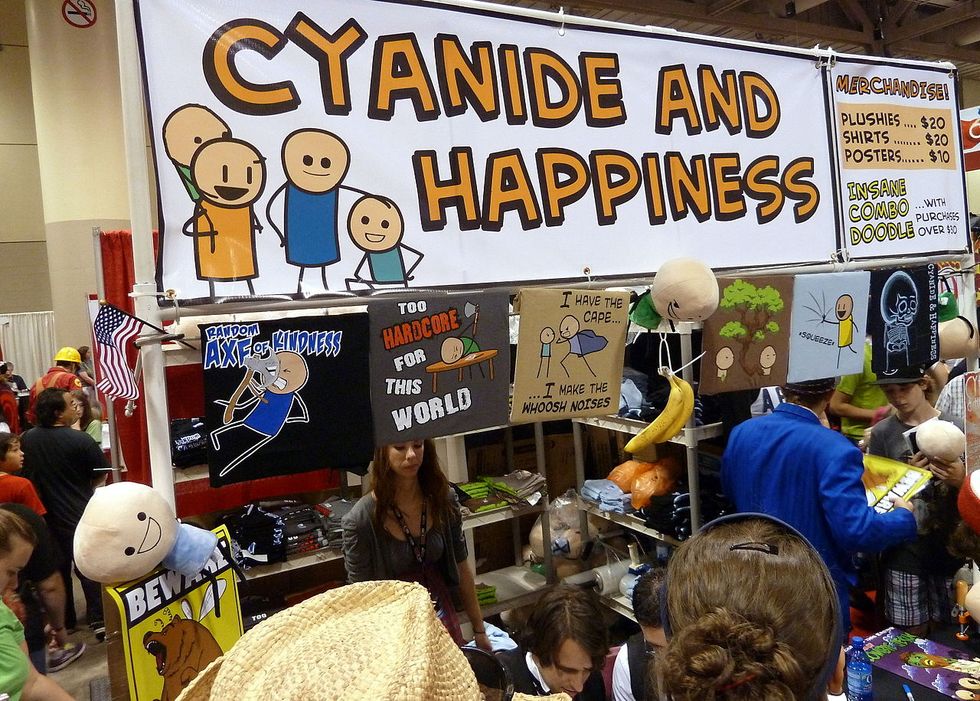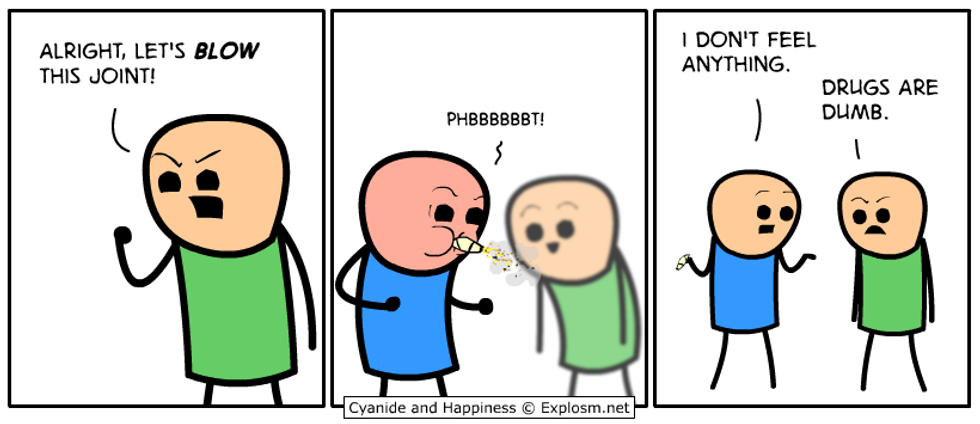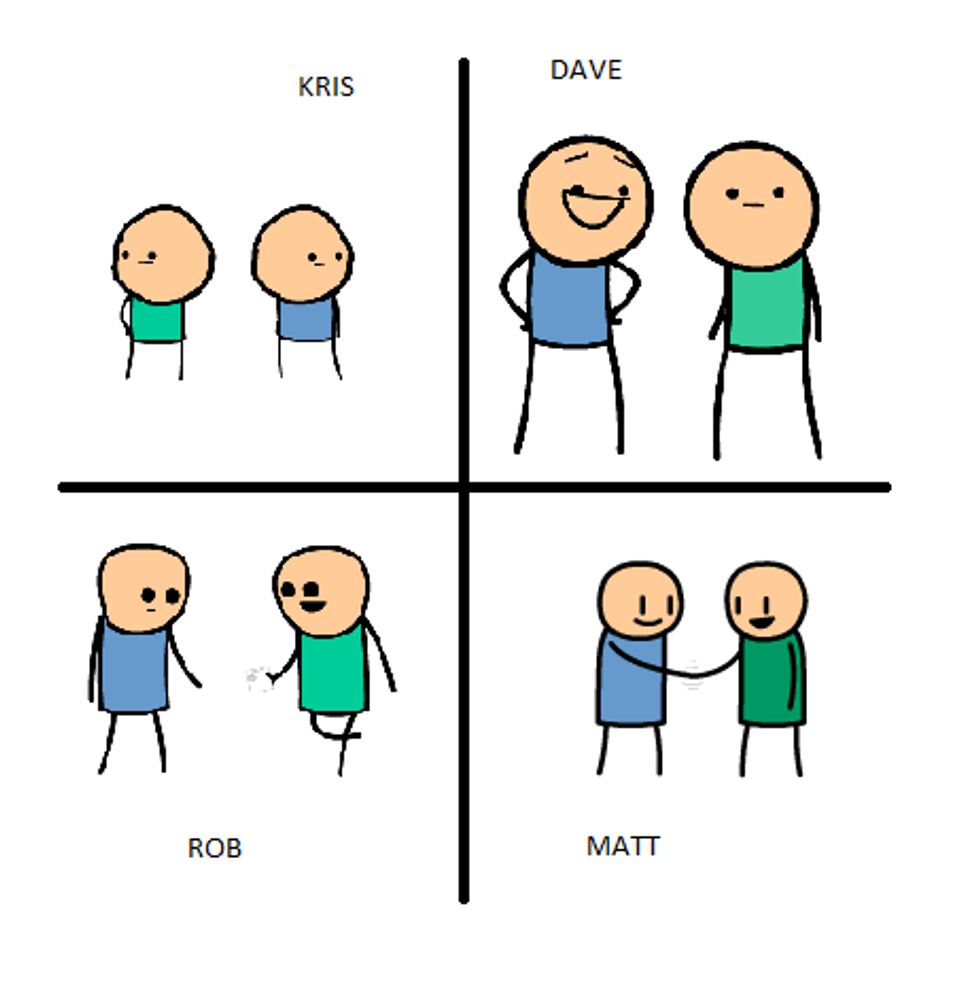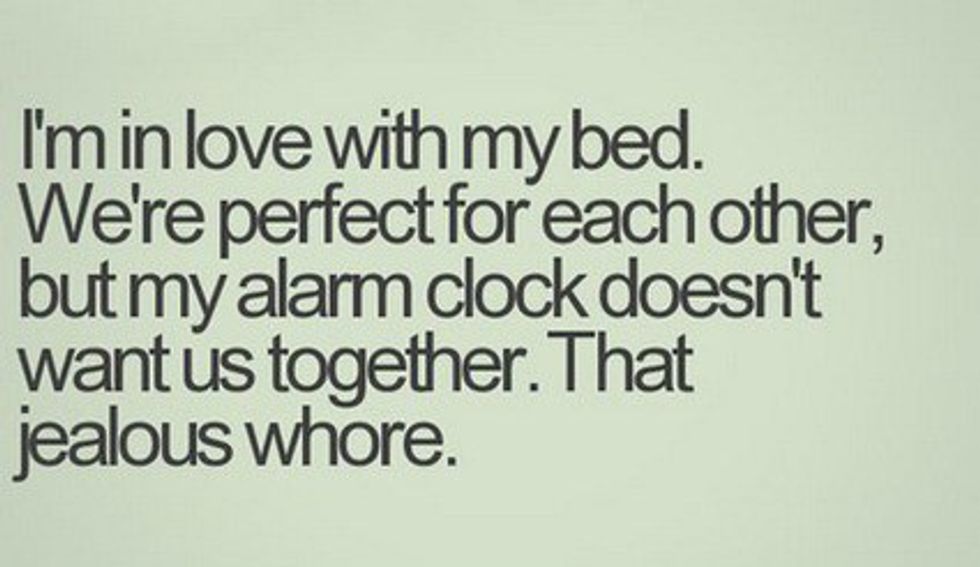"Cyanide & Happiness" was the first comic series that connected with me enough to the point that I wanted to read them. Although the interesting thing about this was that I failed to acknowledge this was the case until well after I started reading them. It took me way too long to realize that these vulgar and dark humor-filled strips of internet code were really comics at all.
In my mind, comics were something written out on paper and sold in a store or found in newspapers. So what makes "Cyanide & Happiness" different? Well, at least for me, "Cyanide & Happiness" was able to keep my attention, something traditional comics couldn’t do.
Their first comic was posted on January 26th, 2005, and since then they have published a new comic nearly every day since then. Having found "C&H" in 2008, I already had a large enough backlog to keep my attention going for a long time.
"C&H" employs satire, sketch, wordplay, and dark humor in their simple and cartoony comics. There is no doubt that other comics are more artistically drawn or venture with safer means of comedy, which is why I want to give credit where credit is due: "C&H" goes against the norm. They aren’t afraid to say what they want and do what they want. They are able to relate to events happening in real time while keeping their simplistic origins and style.
For those who don’t know it yet, the series is published by Explosm and written and illustrated by Kris Wilson, Rob DenBleyker, Dave McElfatrick, and (formerly) Matt Melvin. "C&H" features fictional cartoon characters drawn in a simplistic way. Each of the artists has their own style of drawing the characters that makes it easy to distinguish between each other.
For the most part, the comics are independent of each other, which is one of the reasons why liked them so much; I didn’t need to know a history about the characters beforehand to get into the comic happening right then. Though, there are occasions where recurring characters (such as the Purple Shirted Eye Stabber or Sad Larry) or themed runs (Depressing Comic Week) appear.
While "C&H" has its roots in being a webcomic, like everything else, it has evolved with time. The series has transitioned to other various forms of rhetorical mediums such as merchandise with the introduction of an online store that sells a series of comic video shorts posted regularly to their YouTube, multiple compendiums filled with all the comics published online, as well as other unseen ones, and finally their latest transformation into the hit Kickstarter card game, Joking Hazard.
The fact they have gone through so many evolutions in their media all while staying relevant and true to their roots after more than a decade is something that I really admire and look forward to them continuing.

























